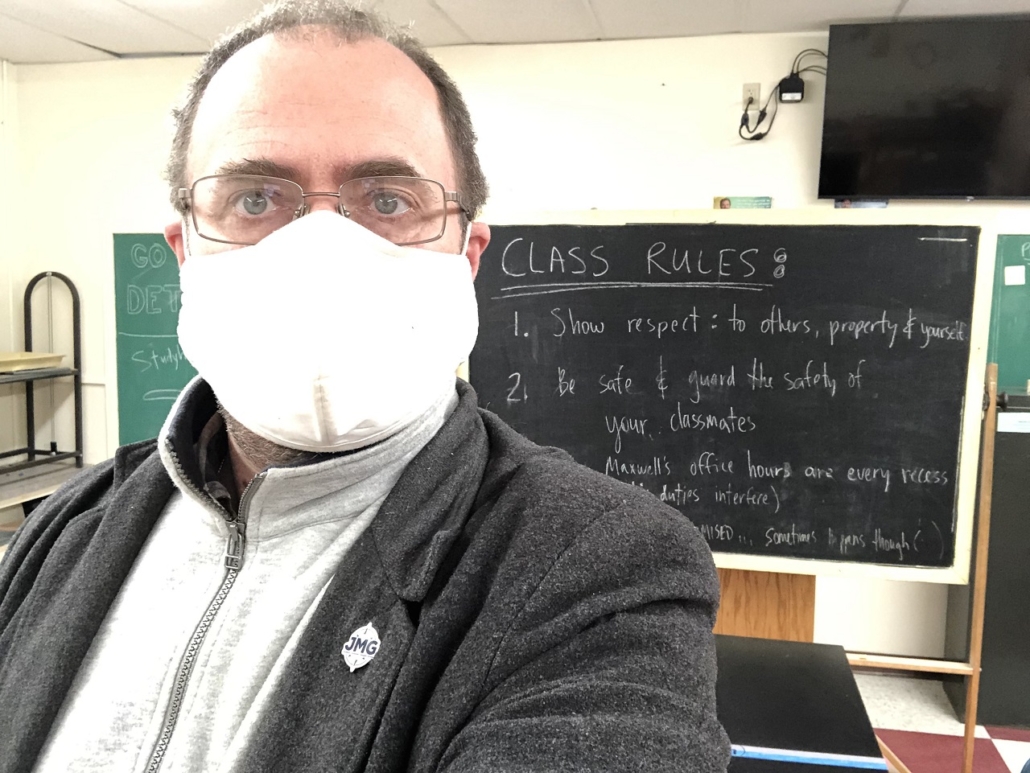China Broadband Committee rearranges future schedule
 by Mary Grow
by Mary Grow
With four of China’s five selectmen joining their April 1 virtual meeting, China Broadband Committee (CBC) members rearranged their future schedule and discussed what might be good news.
Committee members had been scheduled to make a presentation at the April 26 selectboard meeting. Instead, they added a Thursday, April 29, meeting to their schedule, with selectboard members specifically invited to join the live stream.
The CBC was already scheduled to meet at 7 p.m., April 8, April 15 and April 22. Selectmen – and interested residents – are welcome to watch those meetings also, via the Live Stream tab at the lower left of the town website, china.govoffice.com.
The maybe good news came to CBC Chairman Robert O’Connor in an email from Peggy Schaffer, Director of the ConnectMaine Authority. She notified him that the 2021 American Recovery Act will provide $23 million in broadband funding to Kennebec County, with China’s share expected to be $430,000.
Schaffer’s email said the United States Treasury has not issued guidelines for using the funds. CBC members therefore do not know how much, if any, money might be applicable to China’s project.
CBC members looked into an earlier grant that provided funds only for unserved and underserved areas. Most China residents have access to broadband service at some level. At the April 1 meeting, committee member Jamie Pitney cited two estimates of households with no access, out of 2,100 to 2,300 properties: 83, according to ConnectMaine, or 140, according to current provider Spectrum Community Solutions.
Schaffer suggested the CBC prepare an informational presentation to the Kennebec County Commissioners.
CBC members spent most of the April 1 meeting repeating previous discussions for the benefit of selectboard members, with O’Connor, Tod Detre and Jamie Pitney sharing their expertise.
They said China needs better broadband service than Spectrum can provide with its current equipment and technology. A faster, more reliable and more flexible system would expand opportunities for residents, including adults working from home, children attending school remotely and everyone looking for entertainment and communication; and it would give China an advantage in attracting new, high-tech businesses.
They prefer a model that would have the town own the infrastructure and contract out building it, maintaining it and providing service. Under that model, should a service provider be unsatisfactory, town officials could seek a different one.
After reviewing proposals from Spectrum and two other companies, CBC members are negotiating with Axiom Technologies, of Machias, with assistance from consultants Mark Van Loan and James Dougherty of Portland-based Mission Broadband.
They are not ready to make a recommendation to the selectboard. They have no firm cost estimates; no consensus on covering costs (a bond issue has been discussed); and no agreed-upon definition of services to be provided.
Their present position is that the contractor(s) would do the billing and would maintain the town-owned infrastructure. After Selectman Wayne Chadwick asked what if something like the 1998 ice storm brought down lines all over town, CBC members thanked him for the reminder and planned to include a provision ensuring the contractor handled disasters as well as routine repairs.
Chadwick remained skeptical about town involvement. Everything government does is “top-heavy and inefficient,” he said; he would prefer a private contractor take on all aspects of the service.
CBC members agreed they will present updates at selectmen’s meetings, either by Selectman Janet Preston, the board’s non-voting representative on the CBC, or by O’Connor. Should they get new information, like Schaffer’s email, between meetings, they will share that, too.






 Maritime Energy and Maritime Farms convenience stores are once again supporting LifeFlight through gasoline and diesel sales at their 13 Maritime Farms convenience stores. This program, titled “Pennies for Life,” donates one cent for every gallon of gasoline and diesel fuel sold during the months of April and May.
Maritime Energy and Maritime Farms convenience stores are once again supporting LifeFlight through gasoline and diesel sales at their 13 Maritime Farms convenience stores. This program, titled “Pennies for Life,” donates one cent for every gallon of gasoline and diesel fuel sold during the months of April and May.




